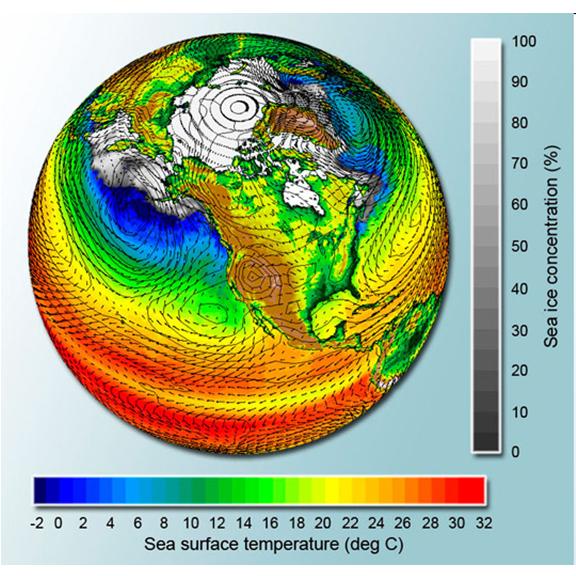These notes from an exoplanet talk discuss modeling the climate of exoplanets. How would we do that with our current technology? Would data be primarily gathered by spectrum analysis?

These notes from an exoplanet talk discuss modeling the climate of exoplanets. How would we do that with our current technology? Would data be primarily gathered by spectrum analysis?

The presentation linked to seems to primarily discuss General Circulation Models, solutions to the equations of fluid dynamics which predict the behavior of a planet's atmosphere, a component of more complete Global Climate Models (confusingly, both are GCMs).
Spectral data on exoplanets is extremely limited to date and poorly constrains the composition, but a lot can be inferred from a planet's orbit and eccentricity (how far from circular the orbit is). At the simplest level, planet temperature depends on how much light it receives from its parent star, and this will vary as a planet goes around a non-circular orbit. Starting from there and making reasonable assumptions about the composition of the planet (usually starting with a solar system analogy) you can test out a GCM model in the various extreme cases we observe (hot Jupiters etc.), to be subjected to future observational constraints.
One exciting new development is looking at a planet's phase curve (the observed brightness of the planet as it orbits its parent star) and using that to infer properties of the atmosphere. One team recently found that Kepler 7b's phase curve may best be explained by the presence of clouds:
Demory, et al. 2013. “Inference of Inhomogeneous Clouds in an Exoplanet Atmosphere.” arXiv:1309.7894 [astro-Ph] (September 30). http://arxiv.org/abs/1309.7894.